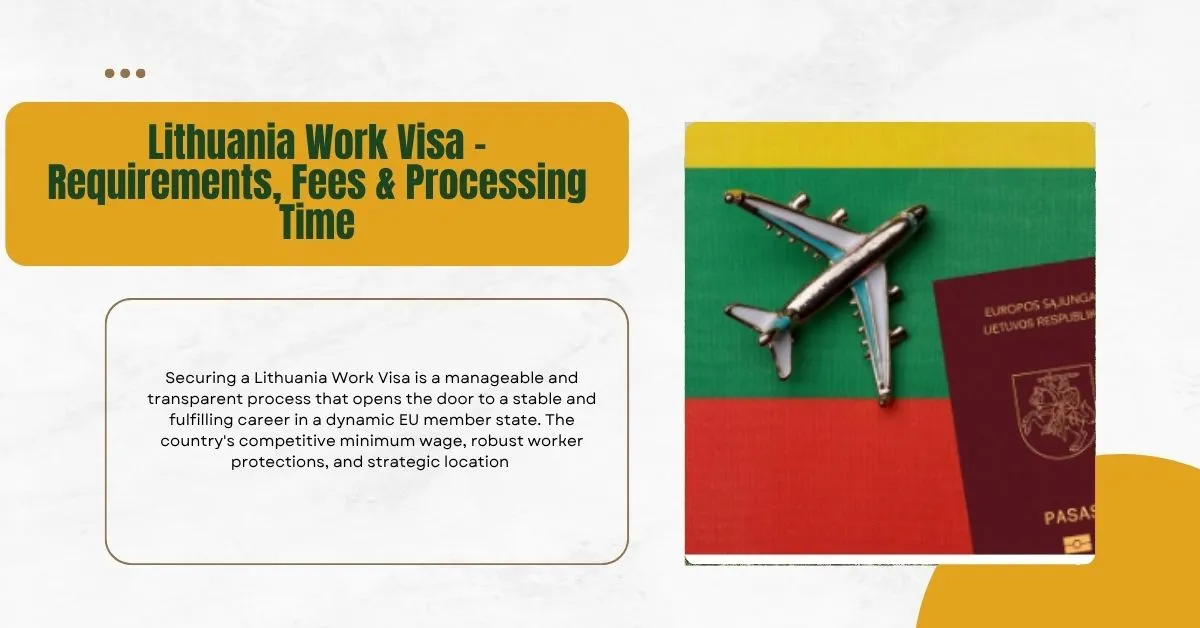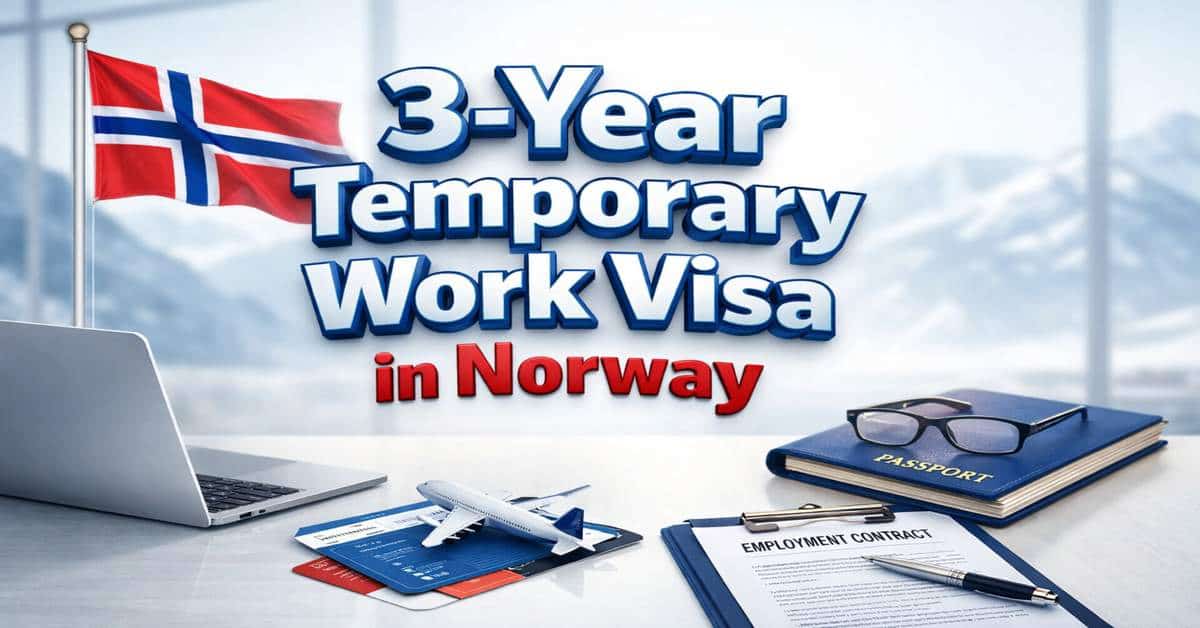Qatar Work VISA 2026

2026 is shaping up to be an exciting year for professionals seeking new horizons, and Qatar continues to stand out as a top destination. With tax-free salaries, booming industries, and a lifestyle that blends modern luxury with rich culture, working in Qatar offers more than just a paycheck it’s a chance to grow professionally while enjoying a truly rewarding life abroad.
Work in Qatar:
- Tax-Free Salaries: Qatar has no personal income tax, allowing employees to retain more of their earnings.
- High Demand for Skilled Workers: The country’s rapid infrastructure development and economic growth create opportunities across various sectors.
- Wealth & Quality of Life: Qatar ranks among the top countries with the highest number of millionaires per capita (source: Credit Suisse Global Wealth Report).
Salary in Qatar:
Salaries in Qatar vary by industry, experience, and qualifications. According to labor market data from Qatar’s Ministry of Administrative Development, Labor, and Social Affairs (MADLSA), foreign professionals can earn between QAR 30,000 to QAR 60,000 per month in high-demand sectors such as:
- Construction & Engineering: Civil engineers, architects, project managers
- Healthcare: Doctors, nurses, medical specialists (IEHPs)
- Hospitality & Retail: Sales closers, event managers, hostesses
- Oil & Gas Industry: Petroleum engineers, drilling supervisors
- Education & Training: Instructors, academic consultants
For accurate salary insights, refer to official job market reports from MADLSA or job portals like Bayt, GulfTalent, and LinkedIn.
Types of Visas:
To work in Qatar, you need to apply for a Work Visa, which falls under the following visa categories:
- GCC Resident Visa (for Gulf Cooperation Council citizens)
- Work Visa (issued to foreign employees with a job offer)
- Tourist Visa (for short-term visitors)
- Family Visa (for dependents of residents)
- Business Visa (for business travelers and investors)
Benefits:
- Tax-Free Income:
Qatar provides tax-free salaries, which allows you to retain 100% of your earnings, thereby significantly increasing your savings potential and disposable income. - High Salaries and Benefits:
Qatar is renowned for its competitive salaries and comprehensive benefits packages, which include annual leave, health insurance, and accommodation allowances. - Economic Stability:
Qatar’s economy is robust and expanding, which is supported by its oil and gas reserves. Expatriates are guaranteed employment due to this economic stability. - Career Opportunities:
The rapid development and investment in a variety of sectors, including construction, education, healthcare, and technology, in Qatar have resulted in a plethora of job opportunities for competent professionals. - Quality of Life:
Qatar maintains an exceptional standard of living by investing significantly in its infrastructure, healthcare, education, and public services. Modern utilities, secure environments, and exceptional healthcare facilities are accessible to expatriates. - Cultural Immersion:
The opportunity to experience a distinctive combination of traditional Arab culture and modern cosmopolitan life is afforded by residing and working in Qatar. This cultural diversity can be beneficial in both personal and professional contexts. - Family-Friendly Environment:
Qatar is renowned for its family-friendly environment, which is reflected in the abundance of amenities and services that are designed to accommodate families. These services include international schools, parks, and recreational facilities. - Travel Opportunities:
Qatar’s central location in the Middle East renders it an optimal starting point for excursions to other regions of Asia, Europe, and Africa. Numerous international connections are available at Hamad International Terminal, the primary terminal in the country. - Networking and Professional Development:
Working in Qatar enables you to establish connections with professionals from various countries, thereby broadening your network and improving your career prospects. - Expat Assistance:
The Qatari government and private sector provide a variety of services to assist expatriates, such as cultural orientation programs, relocation assistance, and expatriate communities. - Modern Infrastructure:
Qatar boasts a world-class infrastructure that includes state-of-the-art facilities, advanced transportation systems, and ongoing development projects, all of which contribute to a comfortable and convenient lifestyle. - Sporting and Entertainment Events:
Qatar is home to a diverse array of international sporting events, concerts, and cultural festivals, which offer residents a plethora of entertainment options.
Check Also: Iceland Work Visa
Required Documents:
To apply for a work visa, you will need the following documents:
- Valid passport (minimum six months validity)
- Passport-size photographs
- Health Insurance Plan issued by the Ministry of Public Health (MoPH)
- Medical fitness certificate (issued by a certified medical center)
- Employment contract or job offer letter
- Academic transcripts & degrees (attested by relevant authorities)
- Biometric verification (to be completed at the Qatar Embassy)
- Work visa application form (issued by the Ministry of Labor)
- Employer’s immigration registration documents
IELTS for a Qatar Work Visa:
No, IELTS is not required for a Qatar work visa. The Ministry of Interior does not mandate English proficiency for work visa applicants.
Age Limit:
- Government jobs: Applicants must be under 60 years old.
- Private sector jobs: No official age limit, but hiring preferences vary by employer.
Visa Cost:
- Work Visa Fee: Approximately QAR 200
- Residence Permit Fee: Around QAR 500 Employers typically cover visa-related costs, but always confirm this with your hiring company.
How to Track Qatar Work Visa Application?
You can monitor the status of your work visa application through the Ministry of Interior (MOI) website:
- Visit portal.moi.gov.qa
- Navigate to Visa Services > Visa Inquiry & Printing
- Enter your passport number or application reference number
Process for Obtaining a Work Visa:
- Secure a Job Offer: Find a job through recruitment agencies, job portals (e.g., Bayt, GulfTalent), or direct applications.
- Employer’s Application: Your employer will apply for a work visa on your behalf through the Ministry of Interior Qatar (MOI).
- Labor Approval: The Ministry of Labor will review and approve the application.
- Visa Issuance: Once approved, your work visa will be issued, allowing you to travel to Qatar.
- Residence Permit Application: Upon arrival, your employer will process your Residence Permit (RP) within seven days.
By following these steps and ensuring your application meets the requirements, you can successfully secure employment and a work visa in Qatar. For the most up-to-date regulations, always refer to official government websites like the Ministry of Labor Qatar or Ministry of Interior Qatar.
Final Tips:
- Use Reputable Job Portals like Bayt, GulfTalent, and LinkedIn.
- Network with Industry Professionals and attend career fairs.
- Ensure Your Documents Are Attested by relevant authorities in your home country.
- Consult with Recruitment Agencies specializing in Qatar employment.
Conclusion:
Qatar offers unmatched career opportunities with tax-free salaries, high-demand jobs, and strong economic stability. Professionals enjoy a high quality of life, modern infrastructure, and a family-friendly environment. Combining career growth with cultural richness, Qatar provides a rewarding experience for expatriates.
Frequently Asked Questions:
What are the main types of work visas available in Qatar?
In Qatar, there are two main types of work visas: the Standard Work Visa is good for full-time workers with fixed pay and is valid for one to three years. Other types of visas are available based on the needs of the job.
How do I get a Qatar work visa?
You’ll need to complete the application in Arabic and disclose the total number of foreign employees, their job positions, and their nationalities. The Ministry of Labor will grant approval. Once the work permits are approved, your company must apply for employment visas for each foreign worker.
What are some high-demand occupations in Qatar?
Occupations in high demand in Qatar include healthcare professionals such as doctors, nurses, and pharmacists, engineers in various disciplines, IT professionals specializing in software development and cybersecurity, construction workers, hospitality professionals, and travel agents.



